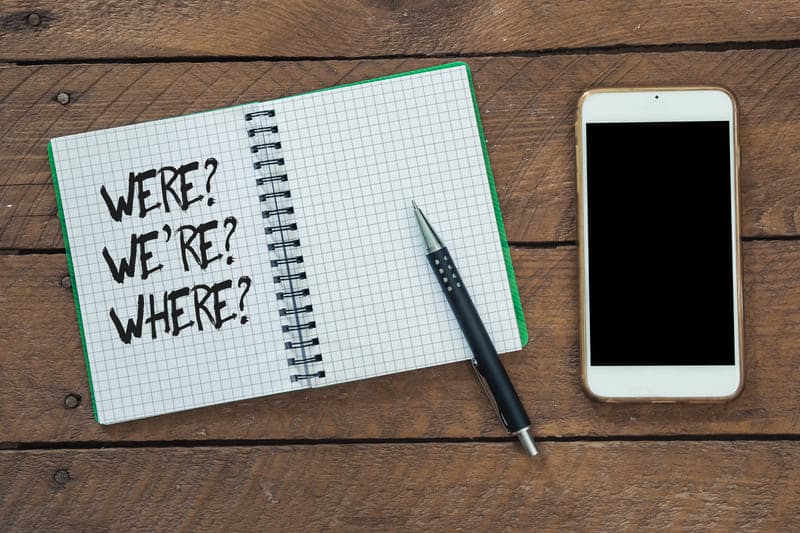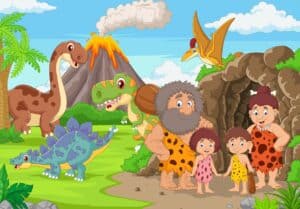English, especially if it’s not your native language, can be a little tricky. Multiple words are written in very similar ways but have completely different meanings. For example, “were” and “where”.
If you are used to using incorrectly those words, don’t worry. Keep on reading to discover the difference between were and where.
“Where” is mostly used to ask a question. However, it can be used as a conjunction, pronoun, and adverb. Remember that “where” always has to do with a place, situation or location. An example is “where is your house?”.
“Were”, on the other hand, is the past tense of “be”. It is that simple. And “What were you doing last night?” is a good example.
Even though they have completely different meanings, it is simple to confound these words because they look similar. Sometimes they even sound like the same word.
To know when is the right time to use each word, you need to know more about them. So, read this article and find out the major differences between were and where.
The Real Difference Between “Where” And “Were”
What makes it so easy to differentiate these words is that “were” is a verb, while “where” can be used as an adverb, conjunction, or pronoun.
“Were” is the past tense of “be”, so you use “were” when you need to describe something that happened in the past. Sometimes we mistake it because of its pronunciation. For example, what is right? “As it where?” or “As it were?”. The right one is “as it were”.
It can be used after a figurative or unusual expression as well. “As it were” is a synonym for “so to speak”. The sentence “They had been, as it were, a map of the territory he was to explore” from Clive Barker’s Sacrament book is an example of how to use correctly this expression.
Other expressions with were are “as if they were” and even “where they were”. Yes, you can use “were” and “where” in the same sentence because they have different grammatical functions.
“Where”, when used as an adverb or conjunction, means in a specific place. A little trick to remember the difference is that where is written with an “h” for “home”, and a home is a place, so where is related to places.
Extra Information
Furthermore, “where” rhymes with “there”. “Where they were? They were there!” is a very good phrase to remember the right applications of each word. When you use when as a conjunction, it means in or at a specific time, place, etc. “They say home is where the heart is, but that’s not where mine lives”, a quote from Taylor Swift’s “London Boy” song is an exemplification of it.
Some expressions and common phrases with where are “to the point where”, “don’t know where”, “let the chips fall where they may”, “where have you been all my life”, “where the sun don’t shine”.
Some bodies of art also use “where” in their titles, such as “When We All Fall Asleep, Where Do We Go?” from Billie Eilish, “Fantastic Beasts and Where to Find Them” which is a book and a movie, “O Brother, Where Art Thou?” from Joel Coen, “Where Did Our Love Go” by The Supremes, and “Where Angels Go, Trouble Follows” by James Neilson.
Now, people normally use “were” a lot more than “where” because it is a verb. Some expressions and common phrases which “were” present include “those were the days”, “if I were you”, “we were happy”, and more.
Some bodies of work with it are “We Were Here” which is a game series, “And Then There Were None” by Agatha Christie, “We Were Liars” by E. Lockhart, “Those Were the Days” by Mary Hopkin, “Wish You Were Here” by Pink Floyd, “We Were There” by Yuki Obata, and “While You Were Sleeping” by Jon Turteltaub.
Were Vs Where: Comparison Chart
| Were | Where |
|
|
Examples Of “Were” And “Where” In A Sentence
“Were” in a sentence:
- “If I were in better shape, I would win the race”;
- “If I were a man, I would be the man”;
- I would win everything if I were there”;
- “I wish I were a little bit taller”;
- “You were very greedy”;
- “All eyes were on Helen as she mounted”;
- “The houses were all made of glass”.
“Where” in a sentence:
- “Tell me where you are.”;
- “Show me where were you hiding.”;
- “Where were they?”;
- “I’ll show you where my house is”;
- “They will tell you where to go”;
- “Where the poets all went to write”;
- “That’s where you were”;
- “The trees don’t look like that at where I come from”.
How Do You Use “Where” In A Sentence?
“Where” can be used as an adverb, conjunction, or a pronoun.
If it is used as an adverb, it is used to describe a specific location or place, most likely meaning “at, in, or to what place”. For example: “A school is a place where people go to study”. What is a school? A place. What do you do in this place? You study.
If it is used as a subordinating conjunction, it links dependent and independent clauses. For example: “She studied in London, where she became a professor”.
This may sound unnecessary to learn, but it is important to know these details because it will help you to communicate yourself better in English. And since English is a language spoken by so many people, getting to know more about English grammar will help you to avoid miscommunication.
How Do You Use “Were” In A Sentence?
“Were” is the past tense of “be”. But you can only use it for the second person (you) and the first (we), second (you), and third-person plural (they).
| Past tense of “to be”: | I was | You were | He was | She was | It was | We were | You were | They were |
| Subjunctive of “to be”: | I were | You were | He were | She were | It were | We were | You were | They were |
“Were” is only used for all verb person when is related to wishful thinking. It is never right to say something like “I wish I was” or “She wishes she was”. The correct is always “I wish I were” and so.



